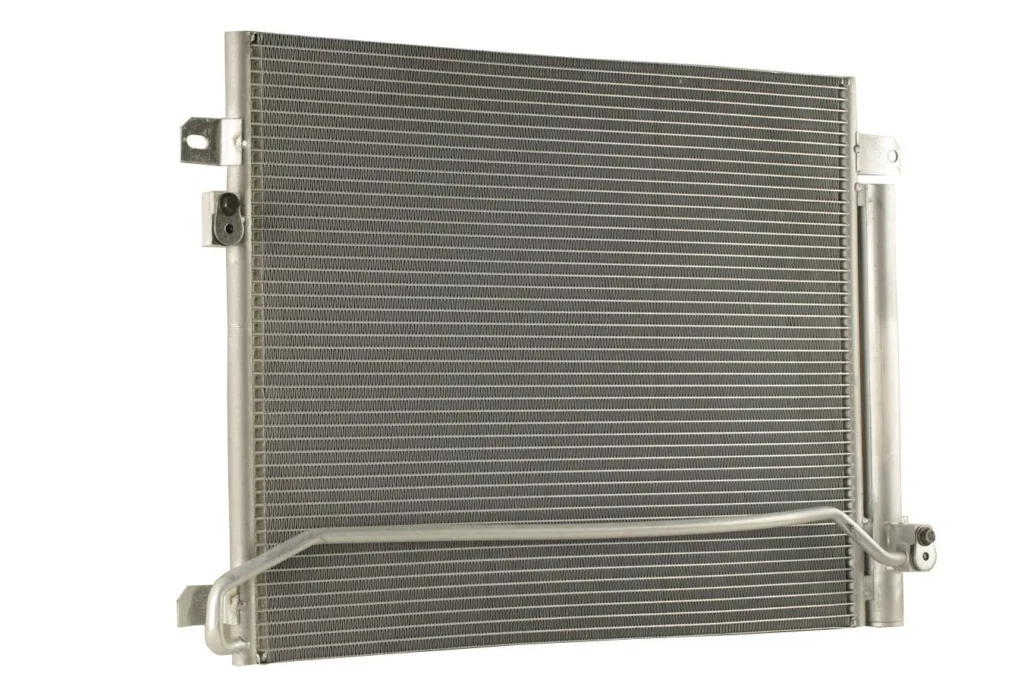Manufacturing efficiency is the backbone of any industrial operation, and one of the critical elements in achieving this efficiency lies in managing heat. As manufacturing demands grow more complex, the need for more efficient and reliable thermal management solutions becomes paramount. This is where microchannel heat exchangers (MCHEs) come into play, offering a powerful means to optimize manufacturing processes by enhancing heat transfer capabilities, reducing energy consumption, and minimizing operational costs.
Precision Cooling for Complex Manufacturing Needs
Manufacturers across various industries—from automotive to electronics—are constantly seeking ways to improve production efficiency. At the heart of this effort is precision cooling. Whether it’s in high-performance machinery, chemical processing, or electronic components, heat must be managed effectively to prevent damage, ensure quality, and maintain productivity.
Microchannel heat exchangers are engineered to meet these challenges head-on. Built with compact designs and multiple parallel channels, MCHEs provide enhanced heat transfer efficiency compared to traditional heat exchangers. Their structure enables a larger surface area for heat exchange within a smaller footprint, making them ideal for environments where space is a premium. This precision cooling capability allows manufacturers to run their equipment at optimal performance without worrying about overheating or energy waste.
Energy Efficiency and Sustainability
Energy efficiency is no longer just a nice-to-have feature; it’s a necessity in today’s environmentally conscious world. Manufacturers are under increasing pressure to reduce their carbon footprint and energy usage while maintaining—or even improving—production output. Microchannel heat exchangers offer a solution that balances these demands.
The advanced design of microchannel heat exchangers reduces the energy required to cool systems, which directly translates to lower operational costs. By improving the efficiency of the heat exchange process, manufacturers can decrease their reliance on energy-intensive cooling methods, thus contributing to overall sustainability goals. This energy efficiency also plays a significant role in extending the lifespan of manufacturing equipment, as reduced thermal stress on machinery leads to fewer breakdowns and maintenance requirements.
Durability and Reliability in Harsh Conditions
Manufacturing environments are often harsh, with equipment exposed to extreme temperatures, chemicals, and other demanding conditions. Durability and reliability are critical factors when selecting components like heat exchangers. Fortunately, microchannel heat exchangers are designed with these challenges in mind.
Constructed from materials like aluminum, which offers a high level of corrosion resistance, MCHEs are built to withstand harsh conditions while maintaining performance. This durability ensures that manufacturers can rely on their microchannel heat exchangers for consistent, long-term operation. Additionally, their compact, lightweight design makes them easier to install and maintain, reducing downtime and ensuring that production processes remain uninterrupted.
Space Efficiency and Versatility
Space is often at a premium in modern manufacturing facilities, where every square inch counts toward maximizing productivity. Traditional heat exchangers can be bulky, taking up valuable floor space and limiting design flexibility. Microchannel heat exchangers, on the other hand, offer a compact solution that can be easily integrated into existing systems without compromising on performance.
The small form factor of microchannel coil allows for greater versatility in installation, particularly in applications where space constraints are a significant concern. This flexibility makes MCHEs suitable for a wide range of industries, from refrigeration and HVAC systems to chemical processing plants. The ability to install efficient heat exchangers in tight spaces means manufacturers can optimize their floor layouts, further enhancing productivity.
Reducing Environmental Impact with Advanced Technology
As the manufacturing sector continues to push for greener, more sustainable operations, the environmental benefits of microchannel heat exchangers become even more apparent. By using less energy and fewer raw materials compared to traditional heat exchangers, MCHEs contribute to reduced greenhouse gas emissions and lower overall environmental impact.
Moreover, the increased efficiency of microchannel technology means that systems can be designed with smaller refrigerant charges, further reducing potential environmental harm. This focus on sustainability, combined with the economic benefits of reduced energy costs and improved system longevity, makes microchannel heat exchangers a forward-looking solution for manufacturers striving to meet both their business and environmental goals.
A Smart Investment for Future-Focused Manufacturers
In an industry where efficiency, reliability, and sustainability are key drivers of success, microchannel heat exchangers represent a smart investment. Their ability to optimize heat transfer, reduce energy consumption, and improve durability makes them an essential component in modern manufacturing processes. As manufacturers continue to face the challenges of meeting rising production demands while adhering to environmental regulations, microchannel heat exchangers provide a cutting-edge solution that addresses these needs effectively.
Whether it’s reducing operational costs, increasing production efficiency, or minimizing environmental impact, microchannel heat exchangers are poised to play a crucial role in shaping the future of manufacturing.
